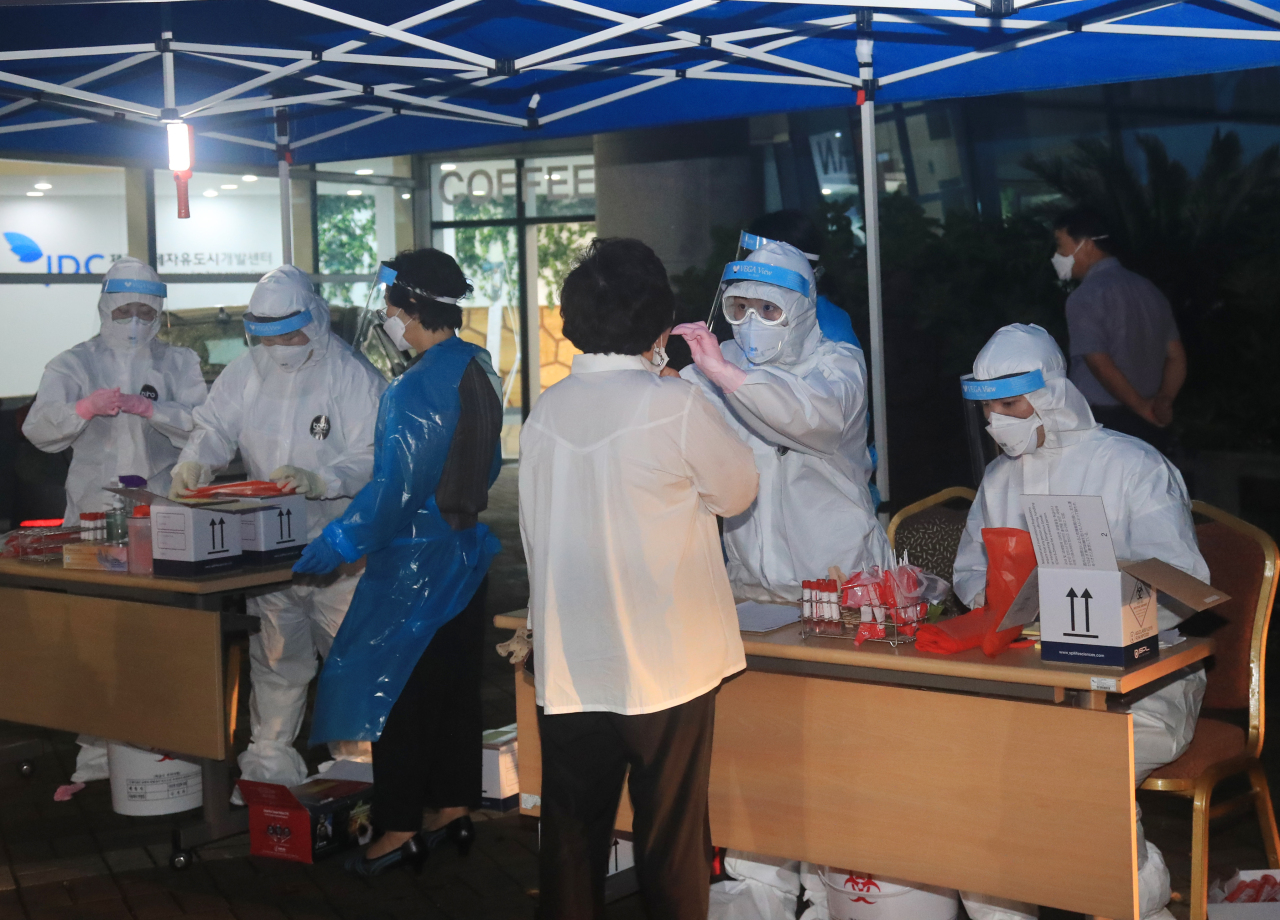 |
(Yonhap) |
The number of coronavirus patients aged 60 or older accounted for nearly 40 percent of the total cases identified in the Seoul metropolitan area in the past two weeks, officials said Wednesday, raising concerns over a further spike in the number of critical patients.
South Korea reported 320 new COVID-19 cases Wednesday as sporadic cluster infections, coupled with rising cases tied to churches, continued to build up. The nation's total caseload stood at 18,265.
With the virus spread showing few signs of letting up, the number of patients in critical condition soared to 43, compared to nine tallied on Aug. 18.
The figure could further rise, along with fatalities, as the number of elderly virus patients continues to increase.
If the spread is not curbed at this point, the number could soar to as high as 130 next week, officials said.
"We need to stop the virus spike now to prevent the collapse of our medical system and to minimize fatalities among those with underlying diseases and the elderly population," Jeong Eun-kyeong, chief of the Korea Centers for Disease Control and Prevention, said during a press briefing.
South Korea's new coronavirus cases have been in the triple digits since Aug. 14, with a whopping 3,395 new cases reported across the nation over the past 13 days. They were mostly traced to a conservative church in northern Seoul and an anti-government march in the capital on Aug. 15 Liberation Day.
Health authorities have been scrambling to secure more hospital beds amid mounting concerns over a possible hospital bed shortage, which could put the country's entire medical system in crisis and hamper treatment for non-COVID-19 patients.
In the metropolitan region, the bed utilization rate for coronavirus patients stood at 75 percent Wednesday, up from 66 percent recorded the previous day.
In Gyeonggi Province surrounding the capital, hospitals for virus patients were nearly full with 96.6 percent of beds being occupied as of midnight. The province reported 92 new cases on the day.
"Through active compensation and incentives, we will encourage university and general hospitals in the metropolitan region to take part in providing beds for critical patients," Yoon Tae-ho, a senior health official, said.
On Wednesday, South Korea reported two more fatalities, raising the death toll to 312. (Yonhap)







![[Today’s K-pop] Blackpink’s Jennie, Lisa invited to Coachella as solo acts](http://res.heraldm.com/phpwas/restmb_idxmake.php?idx=644&simg=/content/image/2024/11/21/20241121050099_0.jpg)
